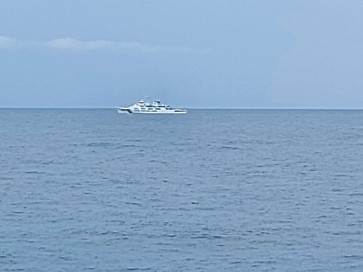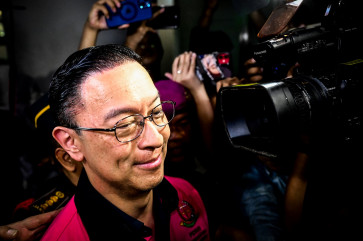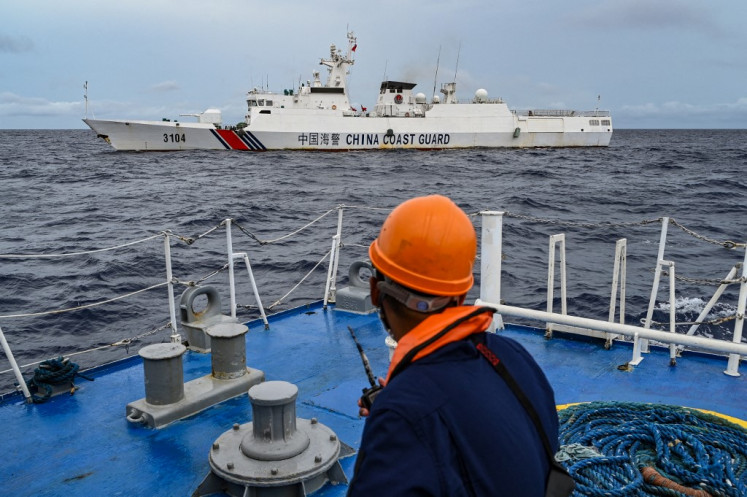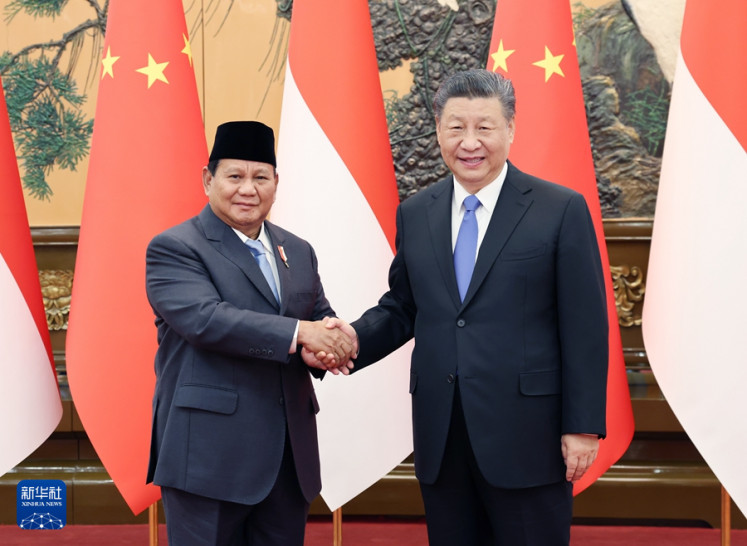New Japanese party official may help improve ties with China
Change text size
Gift Premium Articles
to Anyone
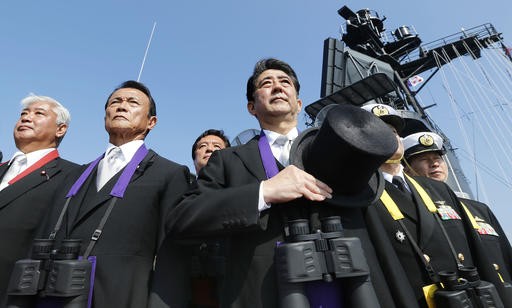 Japanese Prime Minister Shinzo Abe (center) stands with Deputy Prime Minister and Finance Minister Taro Aso (second left) and Defense Minister Gen Nakatani (left) during the official triennial Maritime Self-Defense Force fleet review aboard the JMSDF escort ship Kurama in the waters off Sagami Bay, south of Tokyo, Oct. 18, 2015. (Kyodo News via AP/Kazuhiko Yamashita, File)
Japanese Prime Minister Shinzo Abe (center) stands with Deputy Prime Minister and Finance Minister Taro Aso (second left) and Defense Minister Gen Nakatani (left) during the official triennial Maritime Self-Defense Force fleet review aboard the JMSDF escort ship Kurama in the waters off Sagami Bay, south of Tokyo, Oct. 18, 2015. (Kyodo News via AP/Kazuhiko Yamashita, File)
A
senior Japanese political figure with close ties to China was appointed to a top post in the ruling Liberal Democratic Party on Wednesday, a move that experts said could bring positive effects to China-Japan ties.
Toshihiro Nikai, 77, took over for Sadakazu Tanigaki as secretary-general of the ruling Liberal Democratic Party, the party's second-most powerful post following the party's president, Prime Minister Shinzo Abe.
The appointment came amid a reshuffle of the Japanese Cabinet and ruling party's executive lineup on Wednesday.
Nikai, who has been elected to the House of Representatives 11 times, previously served as economy minister and transport minister.
Nikai has maintained frequent contact with Beijing. He has visited China at least eight times since 2000, including three visits last year.
In May 2008, he donated 200,000 yen (US$1,980) to the victims of the Wenchuan earthquake, according to Xinhua News Agency. The magnitude-8 quake struck on May 12, 2008, leaving more than 69,000 people dead in Southwest China's Sichuan province.
During a trip to Beijing in April, Nikai told State Councilor Yang Jiechi that it is very important that the heads of the two states meet with each other frequently, Kyodo News reported.
Wang Ping, a senior researcher at the Institute of Japanese Studies of the Chinese Academy of Social Sciences, said that although Abe chose right-wing lawmaker Tomomi Inada as defense minister, he could still maintain a reliable communication channel with senior Chinese officials through Nikai.
"It showed Abe's pragmatic logic in Japan's policy toward China," she said.
Kyodo said on Tuesday that China and the Republic of Korea would be on high alert following the nomination of Inada as defense minister.
Sun Cheng, a professor of international relationship studies at the China University of Political Science and Law, said that Nikai is expected to play a positive role in the development of China-Japan ties, given his friendly attitude toward China in the past.
He added that Sino-Japanese economic ties and people-to-people exchanges are so important that the Japanese government has to maintain communication with China, and Nikai could improve bilateral ties when tensions rise. However, Nikai's influence on Japan's overall policies is likely to be limited, he said.
Liang Yunxiang, a professor at the School of International Studies of Peking University, said he didn't believe Nikai would have much influence on China-Japan ties.
"I think Abe's choosing Nikai as the party's No 2 figure is based on a comprehensive appraisal, including his capability and experience, and I don't think such an arrangement is for the purpose of amending China-Japan ties," he added.

